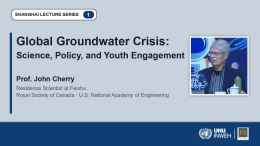Between Tradition and Transformation: Negotiating Land and Water Resources in Ghana’s Pra River Basin
While numerous studies have highlighted the connection between changes in land use and surface water quality and quantity, there remains a paucity of literature that critically examines how the coexistence of customary and statutory governance systems influences basin-level ecological outcomes in the context of legal pluralism. Using a qualitative case study approach, we examine how overlapping statutory mandates, and the enduring authority of customary actors shape environmental outcomes. Drawing on stakeholder interviews, this study reveals that conflicting governance norms, siloed planning, and tenure insecurity significantly contribute to riparian ecosystem decline. Customary authorities retain legitimacy and close ties to local land practices, yet their exclusion from formal planning processes undermines integrated basin management. Conversely, statutory bodies, although backed by legal authority, often lack local legitimacy and effective enforcement capacity. This study reiterates the urgent need for a harmonization of these governance systems to bridge the divides by integrating customary legitimacy with statutory authority. We propose a framework that illustrates governance interactions that provide a pathway to institutional synergy. This framework provides a lens for addressing surface water governance challenges, particularly in African contexts, where water governance is fraught with legal pluralism. This study contributes to the political ecology literature by demonstrating how harmonized governance can foster more inclusive, adaptive, and resilient water management in sub-Saharan Africa.
Related content
News


